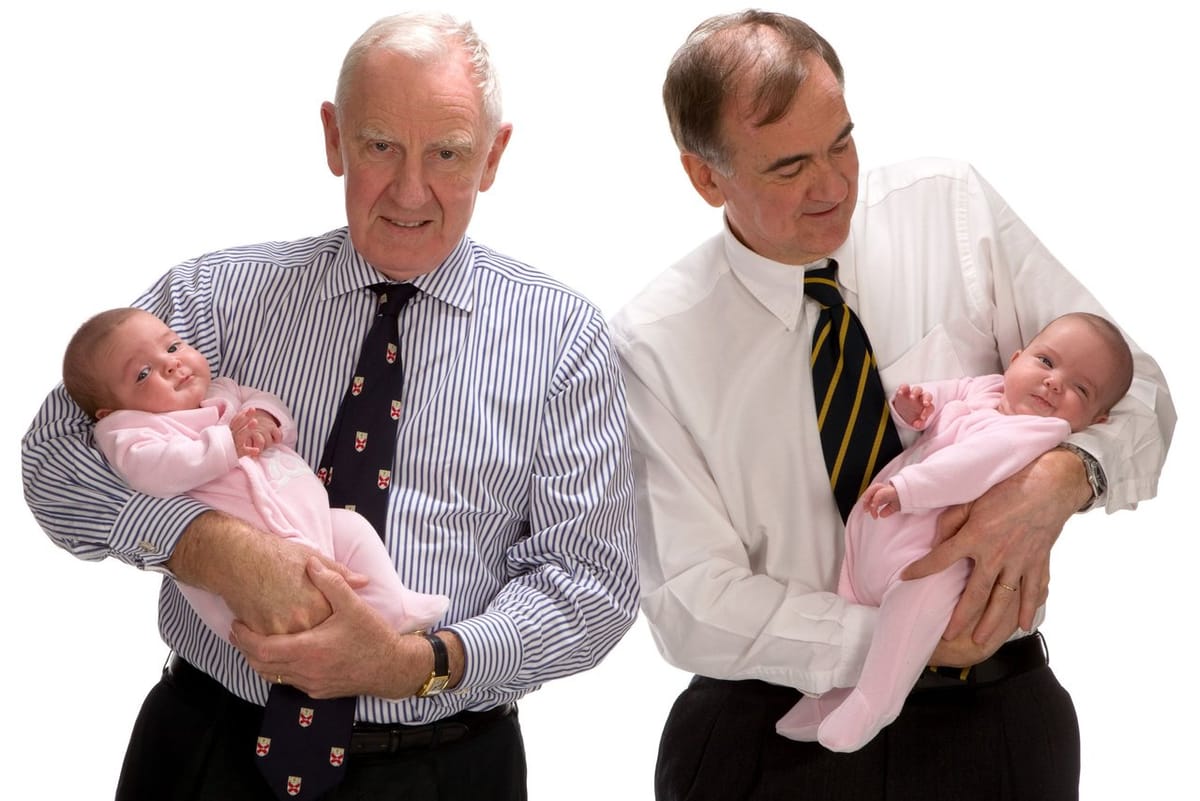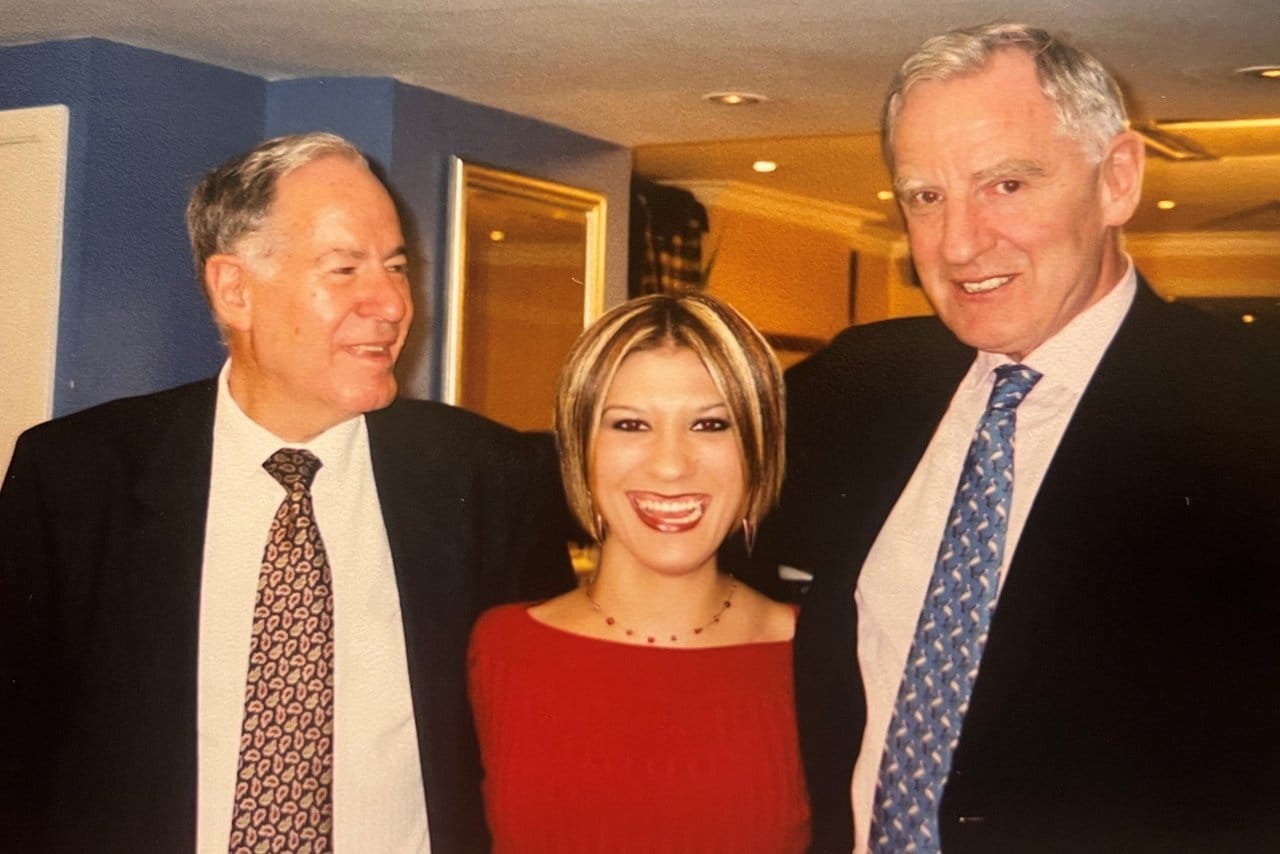Surgeons Mark 40 Years Since First Conjoined Twins Separation

By Jill Dando News
Two surgeons who led the first ever separation of conjoined twins at Great Ormond Street Hospital forty years ago have been reunited with their patient.
On 3 March 1985, surgeons Lewis Spitz and Edward Kiely, along with a team of 26 clinicians, carried out the nine-hour operation to separate Holly and Carly.
The emergency operation took place when the girls, who were joined at the upper chest and abdomen, were just a few days old.
Since then, teams at Great Ormond Street Hospital have cared for 43 sets of conjoined twins, understood to be the most in the world at a single hospital.
Many teams are involved in their care, including theatre staff, neurosurgeons, orthopaedics, haematology, urology, general surgery, orthopaedics, plastics, anaesthetics, intensive care, paediatricians, ward nurses as well as allied health professionals including physiotherapists, occupational therapists, dietitians, speech and language therapists, and the Play team.

Holly and Carly were brought to GOSH on the same day they were born and underwent the complex surgery at just a few days old as it was not felt to be safe to wait any longer. Sadly, Carly died of heart complications around six weeks later.
Holly went on to have 10 surgeries in the following months and remained at GOSH for almost a year. During this time her dad had to keep returning to America for work, and Holly’s mum remained in the UK looking after her and her three-year-old sister, with the support of family.
Holly now lives in Texas and has remained in touch with Professor Spitz over the years, including returning to the UK for his retirement party in 2004.
Ahead of her 40th birthday, Holly was reunited on a Zoom call with Professor Spitz and Mr Kiely, who she hadn’t seen for around 20 years. They wished her a Happy 40th Birthday and said how nice it was to hear how well she was doing.
She said: “I’m very grateful to Professor Spitz and Mr Kiely and thankful that in a small way I helped them learn when they did our separation, so that so many children were able to live.
“It’s incredible to think what my parents went through. I know that my mum felt that Great Ormond Street Hospital and Professor Spitz, Mr Kiely and all the nurses there became family because we were there for the year, and that was really wonderful.
“I wanted to say thank you to them both, I truly am alive because of them and I know it was a whole different world 40 years ago and things were quite new in this in realm, but God bless them for having the knowledge and the ability. I am so thankful for them both because I have been able to live a really beautiful life and it wouldn’t have happened without them.”
Mr Kiely, Professor Spitz and their colleagues went onto to care for many conjoined twins but have described what it was like to carry out the first separation in 1985.
Professor Spitz said: “We had never done it before so it was unique and it was an emergency. I was certainly nervous.
“When we started we had ultrasound but no CT, no MRI and so we were going in blind, we just had to do the operation. We had a cardiac surgeon with us in case they were joined at the heart. Imaging has been one of the biggest changes.
“It’s great when we get to see them again, it makes you realise we saved their lives and you get to hear how they are doing and feel so proud.”
Mr Kiely said: “At the time it was new, but it was actually just a major operation and we were doing lots of of major operations so I wouldn’t say we were overwhelmed but we were very aware that two babies were at risk.
“A lot of people were involved and they were all important as they allowed us to do the separation. Looking back the improvements in anaesthesia and intensive care have made the biggest difference.
“When you’re a paediatric surgeon, you’re dealing with children and hoping they’ll have another 70 years to go. You are trying to maximise their potential and hope you are setting them up to ease their travel through life.”
Mr Kiely and Professor Spitz worked at Great Ormond Street Hospital for over 25 years. Each year a symposium is held in their honour and is one of the highlights of the UK Paediatric Surgical calendar.
There is also the Lewis Spitz Surgeon Scientist PhD programme, which is a surgical PhD scheme supported by Great Ormond Street Hospital Charity, the National Institute for Health and Care Research (NIHR) and GOSH Biomedical Research Centre (BRC). It is open to all junior surgeons with the aim of developing future surgeon scientist leaders with excellence in translational research.





